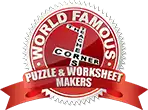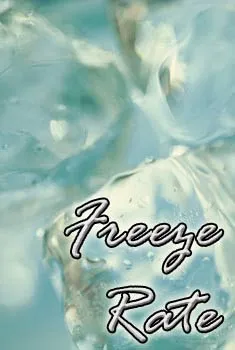 The Teacher's Corner
The Teacher's Corner
Freeze Rate Experiment
Ice Race
I got the idea for this week's experiment Saturday while I was at the Miami Museum of Science. In between my shows, some students were doing cooking demonstrations. They were cooking mushrooms (Which were delicious!) and talking about fungi. Watching them chop the mushrooms started me thinking and soon I had this week's experiment.
 You will need:
You will need:
- a wide, plastic container
- a plastic cup
- water
- a freezer
Fill the plastic cup with water and pour it into the plastic container. Then fill the cup again. Place the container and the cup into the freezer. We are going to wait until the water is frozen. While you are waiting, make a guess about which you think will freeze first. Wait a minute! They both have the same amount of water, don't they? Doesn't that mean that they will both freeze at the same rate? Take a quick peek every 15 minutes until one of them is completely frozen. Which one froze first?
The water in the wide container froze much faster. Why? Even though they both have the same amount of water, they are in very different shapes. The water in the wide container is much more spread out. It has a much larger surface. The surface is where the heat is transferred, so the more surface area, the faster the heat will be transferred and the faster the water will freeze.
You can see the same thing in reverse. Let the cup and the wide container stay in the freezer overnight, to be sure they are both well frozen. Remove them and place them on the table. Wait and check them periodically, to see which one melts first. Which do you think it will be? Right! The wide container melts faster, again because it has more surface area.
What does all of this have to do with cooking? Think about cooking potatoes. Imagine if we had a pot of boiling water and two potatoes. If we put one potato in whole and cut the other into one inch cubes, which would cook faster? The cubes, right? Cutting the potato into pieces means more surface area, which means it cooks faster. That is why we often chop vegetables before we cook them. It lets them cook faster and more evenly. I have always enjoyed cooking and it is even more fun when you can see the science in it.
 Check out more Science Experiments
Check out more Science Experiments
All lessons are brought to you by The Teacher's Corner and Robert Krampf's Science Education Company.
Robert Krampf's Science Shows thehappyscientist.com